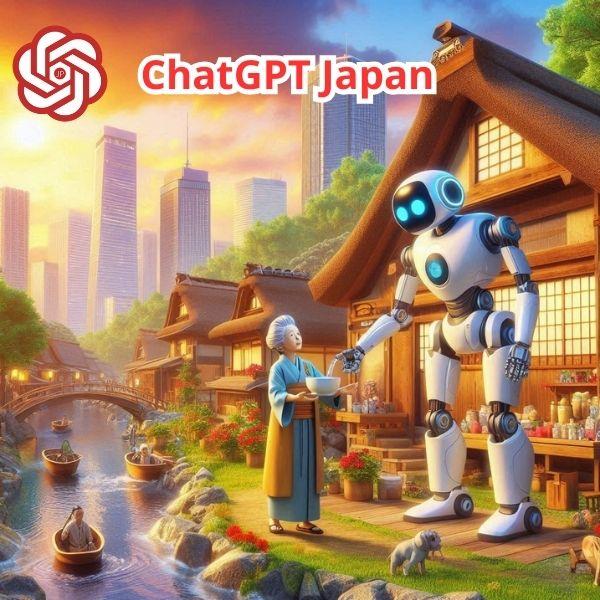Introduction
Artificial intelligence (AI) is transforming industries worldwide, and Japan is no exception. As AI-powered tools such as ChatGPT gain popularity, questions surrounding their legal and ethical use are increasingly relevant. The adoption of AI in Japan is guided by both opportunities and challenges, particularly regarding legal compliance and ethical considerations.
In this essay, we will explore the legal framework governing AI in Japan, focusing on its implications for technologies like ChatGPT. By understanding these regulations, users and businesses can responsibly and effectively use チャットgpt 日本語 while adhering to Japanese laws.
Legal Framework for AI in Japan
1. Japan’s Approach to AI Regulation
Japan's government actively supports AI innovation while emphasizing ethical standards and risk management. In 2019, the country released the "AI Utilization Guidelines," which highlight principles such as transparency, accountability, and respect for human dignity. These guidelines are not legally binding but serve as a framework for ethical AI use.
For tools like ChatGPT, these principles ensure that AI-generated content is accurate, unbiased, and free from harmful implications. Businesses using チャットgpt 日本語 must align their practices with these guidelines to build trust and maintain compliance.
2. Data Protection and Privacy Laws
AI systems like ChatGPT rely heavily on data, raising concerns about privacy and data protection. Japan’s Act on the Protection of Personal Information (APPI) governs how personal data is collected, stored, and processed.
For チャットgpt 日本語, this means ensuring that user data is handled securely and not misused. Developers and businesses must implement robust data protection measures to comply with APPI regulations and avoid legal repercussions.
Key Legal Considerations for AI Use
1. Intellectual Property Rights
One of the most debated aspects of AI is intellectual property (IP). In Japan, questions arise about who owns the rights to AI-generated content.
- If a user employs チャットgpt 日本語 to generate content, does the copyright belong to the user or the AI developer?
- Are businesses allowed to commercialize AI-generated outputs without explicit permission?
Currently, Japan’s copyright laws do not explicitly address AI-generated content. However, businesses are encouraged to establish clear policies to avoid disputes.
2. Liability and Accountability
Another critical concern is determining liability for AI-generated errors. For example:
- If チャットgpt 日本語 provides incorrect or misleading information, who is responsible—the developer, the user, or both?
Japan’s legal framework emphasizes shared accountability. Developers must ensure their AI systems are reliable, while users should exercise caution and verify AI-generated outputs.
3. Ethical AI Practices
Japan’s commitment to ethical AI use is evident in its guidelines promoting fairness, non-discrimination, and inclusivity. For チャットgpt 日本語, developers must ensure that the system avoids generating biased or harmful content.
By adhering to these principles, businesses can foster trust and promote the responsible use of AI in various industries.
Specific Challenges for ChatGPT in Japan
1. Language and Cultural Sensitivity
While ChatGPT excels in 日本語, cultural nuances can be challenging. AI systems must ensure that their outputs are culturally appropriate and align with Japanese societal norms. Misinterpretations or offensive content could lead to public backlash and legal consequences.
2. Balancing Innovation and Regulation
Japan’s legal landscape aims to strike a balance between encouraging AI innovation and protecting users. However, overly strict regulations could stifle creativity and limit the potential of tools like ChatGPT. Collaborative efforts between policymakers and developers are essential to address this challenge.
Opportunities for Businesses Using ChatGPT
Despite these challenges, チャットgpt 日本語 offers numerous opportunities for businesses:
- Content Creation: ChatGPT can generate high-quality content for marketing, customer engagement, and educational purposes.
- Customer Support: AI-powered chatbots provide efficient and cost-effective customer service solutions.
- Language Learning: Tools like ChatGPT assist learners in mastering 日本語, enhancing their language skills through interactive conversations.
By navigating Japan’s legal framework responsibly, businesses can harness the full potential of ChatGPT while avoiding pitfalls.
Future Trends in AI Regulation
1. Evolving Legal Frameworks
As AI technology advances, Japan’s legal framework will likely evolve to address emerging challenges. Future regulations may focus on:
- Defining Ownership of AI-Generated Content: Clear guidelines on intellectual property rights for AI-generated works.
- Strengthening Data Protection Laws: Enhanced measures to secure user data and prevent misuse.
- Addressing Bias and Discrimination: Stricter regulations to ensure AI systems promote fairness and inclusivity.
2. International Collaboration
Given the global nature of AI, Japan is expected to collaborate with other countries to establish universal standards. This will ensure that tools like チャットgpt 日本語 remain competitive in international markets while adhering to global norms.
Contact
Company name: ChatGPT Japan
My page: https://chatgptjapan.com/
City: Chuo City, Tokyo
Country: Japan
Postal code: 104-0061
Phone number: +8164-221-1078
Email: chatgptjapan.com@gmail.com
Google Map: 7-chōme-14-13 Ginza, Chuo City, Tokyo 104-0061
#chatgpt日本語, #チャットgpt無料, #チャットgpt, #チャットgpt日本語, #chatgpt




